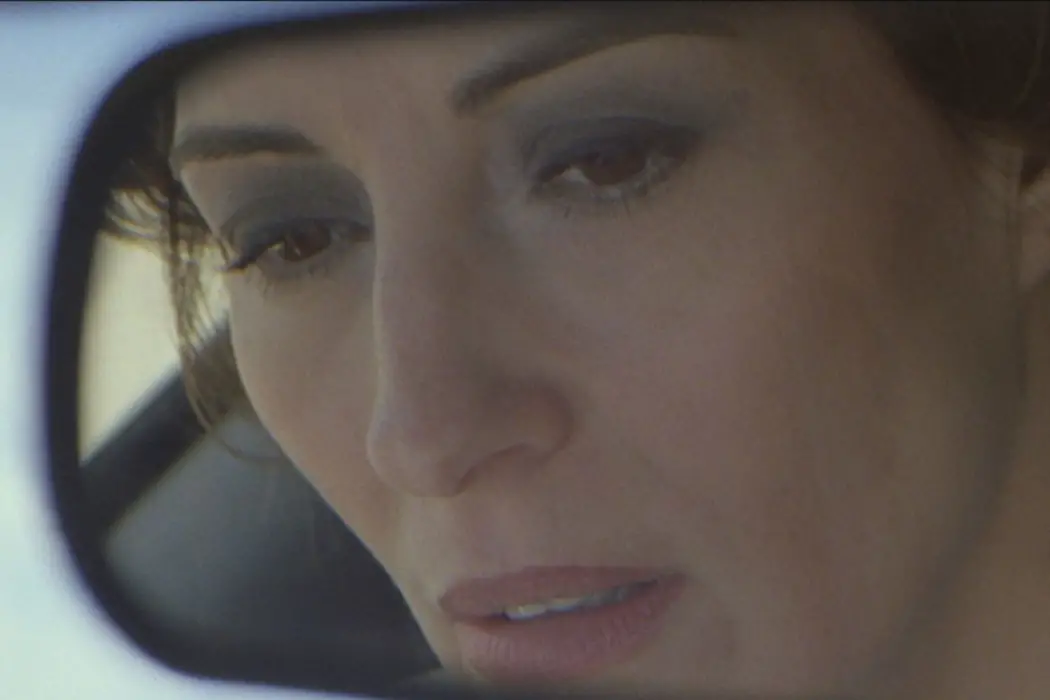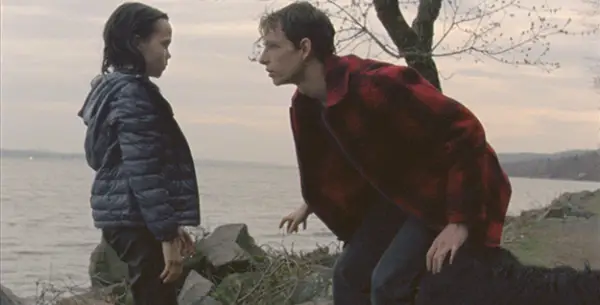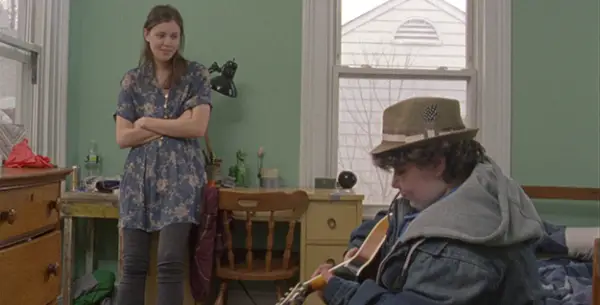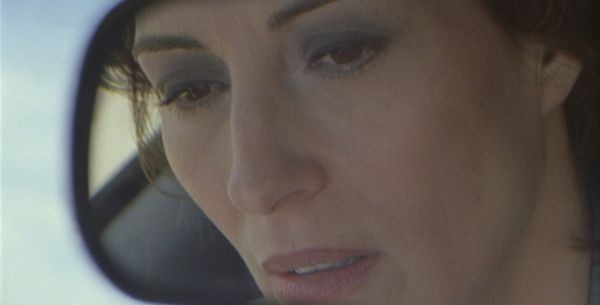THE GRIEF OF OTHERS: A Fragmented Family Drama Promoting Wholeness

Tynan loves nagging all his friends to watch classic movies…
Grief is a universally experienced phenomenon. Yet we rarely consider it out in the open because it carries with it such a weight of pain and suffering. No normal human being wants to relive that and yet the irony is, we usually do, albeit concealed and hidden inside our hearts and minds. Thus, The Grief of Others is a film that externalizes these internal emotions and suggests, even implicitly, it can be absolutely cathartic to share in this process with others.
Some might be young enough that they feel generally free from the numbing grasp of grief and all that can be said for the time being is, Just give it time. It’s inevitable. While director Patrick Wang‘s movie is not a manual for coping with grief, it is probably far more accessible; because, thankfully, it is invariably human in scope. Given its means and topic, it has to be. There is no other way around this material.
Watching the film, I was reminded of author C.S. Lewis’s meditation, “A Grief Observed”, following the sudden death of his beloved wife. In it, he asked the following: “How often – will it be for always? – how often will the vast emptiness astonish me like a complete novelty and make me say, ‘I never realized my loss till this moment?’ The same leg is cut off time after time.” Certainly, the road to recovery begins with acknowledgment. But this is far easier said than done.
The Cycles of Grief
The film itself opens with a POV shot in a hospital. We see glimpses of faces partially obscured. There are no voices. Just the monotonous droning of monitors in the background. This is the crucial moment for Ricky (Wendy Moniz) and John Ryrie (Trevor St. John). Although we only learn it much later, this was the fateful day on which their third child, Simon, was born – only to tragically die 57 hours later – leaving them completely devastated. It is the aftermath of these events, The Grief of Others, adapted from Leah Hagen Cohen‘s original novel, is particularly invested in.

Because if the instantaneous moment of loss is indescribably horrible, the subsequent days of lingering pain, grief, and apathy sometimes can feel far worse. They can plague us, torture us day and night; cutting us off from the world when we are in the greatest need of human contact. And our relationships with those closest to us can suffer as a result.
There are other signs of stress on the family. The Ryrie’s daughter Biscuit (Oona Laurence) has been cutting school and she falls into the river, only to be rescued by a guy named Gordie (Mike Faist), out walking his dog. Then, out of the blue, John’s grown daughter from his first marriage also pays the family a visit; Jessica (Sonya Harum) is given an open invitation to stay. Because, as an added wrinkle, she is well along in pregnancy and of course, the father is nowhere to be found. Meanwhile, Biscuit remains detached, even setting a fire in the house, while the Ryrie’s son Paul (Jeremy Shinder) gets into a fight at school.
Beginning with the heads of house and funneling down, it becomes increasingly clear there are no clear lines of communication within this family. The discord is all too apparent and yet they continually avoid the topics hurting them the most.
The Impact of Grief
In his effort, Wang settles on a structurally fragmented depiction of family to reflect the very nature of their grief. In one seemingly inconsequential interaction, an adolescent boy asks his half-sister, “Why’d you cut your hair” and she bluntly responds, “Oh, this game. Nonsequitors. I love this game. Why are you dying to have me leave?”
There are these abrupt but very purposeful delineations. We have overlapping dialogue that in one sense feels slightly manicured but there is also a preciseness to the diction. The story is folding over itself at crucial points. It has flashbacks and flashforwards. While the decision makes thematic sense, I’m not sure if the execution is seamless all the time.

However, what does work is the mere examination of the characters in the most unadorned ways. Again, Wang exercises a penchant for long, stationary takes which give ample time and space for events to unfold. He also utilizes fade outs which act almost like the scene breaks of a stage play.
We have familiar rhythms of life playing out, like driving home from work, lying in bed listlessly, washing the dishes to keep busy. The use of sound has a similar effect – from chirping crickets to percolating coffee to running water – it instills the story with touches of the mundane. Because the distinction is, grief ambushes us in exactly these types of spaces. There’s nothing particularly glamorous or novel about them but they suffused with a kind of relatable transparency. Just as Lewis articulated in the earlier quote.
In one sense, I could not help but see tinges of Kenneth Lonergan‘s Manchester by The Sea because there is the same sense of human drama where characters are struck by deep-seated tragedy they must come to terms with. There is no other alternative.
One of the most striking moments occurs with the screen completely black; all we hear are voices upon voices all saying the same well-meaning but ultimately empty words. These are their attempts at condolences. Again, I am reminded of Lewis saying, “I see people, as they approach me, trying to make up their minds whether they’ll ‘say something about it’ or not. I hate if they do, and if they don’t.”
For John, it gets at part of the dissonance he is feeling because no one is able to comfort him and the fact he and his wife are hardly talking strips him of the one lifeline he needs most. He has nowhere else to turn except the numbing medication of alcohol.
However, Ricky is suffering through tragedy and guilt of her own, still ringing in her ears in the words of her doctor, “Without the cerebrum, there’s no thinking, no feeling, no consciousness.” She knowingly brought her son Simon into the world like this – in a sense setting herself and her husband up for heartbreak; surely that cannot be worth it? It’s the long feuded-over question. Would it be more humane to end the life? But I think only a parent can speak to that, someone who is admittedly flawed and scared but still full of love in their heart for a helpless life. And perhaps there is another reason.
Conclusion: Grief Leading to Healing
There is one particular scene in The Grief of Others emblazoned on my mind like a lynchpin of resounding poignancy. There stands a woman who has lost a child comforting a young girl who just lost a child she did not want and she feels the guilt of it. And here we have this maternal scene of understanding and comfort. Where Stephanie can cry and be vulnerable – letting out all these pent-up emotions – but it is a healthy and safe space. It is the film at its most heartbreaking and at the risk of sounding too clinical, at its most effective.

Because we imbibe so much human frailty right here that is beautiful and messy. But as life waxes and wanes, it becomes more evident how interlinked those qualities often are. It takes the messiness for the beauty to come in sharper relief.
For instance, I do not think it’s a mistake that many of the characters within this story seem to have these side gigs as part-time artists. Gordie’s deceased father was only a postal worker and yet he made these intricate dioramas full of inventiveness. Then Paul can be found with his own stash of caligraphy nubs drawing comic book storyboards when no one is looking. He and his step-sister even share one of their most candid moments messing around with a ukelele.
While all the stylistic choices aren’t necessarily to my tastes (why should that matter anyway?), this tale stays with me. In one sense, I still am left with so many questions about events and characters, but the core hurt has instigated an incremental process toward healing and this is the key.
One of the strengths of Wang‘s exploration is in mere expectations. He complicates matters so they are not simple dynamics since no family is and by doing so, he has enriched the canvas of his world and made the characters all the more meaningful. The title itself does not meet with preconceived expectations. If anything perhaps it suggests most profoundly our own grief – so horrible and debilitating as it is – might be an inroad to helping others through their own pain. However, the ultimate revelation comes when we find, as a result, our own anguish might be alleviated as well.
So if it takes time for some people to experience true grief then the opposite is also true, though we will never be made completely whole ever again. Perhaps it is for the best. And time can only heal wounds if we let it through intentionality and a sense of vulnerability that can be simultaneously scary and painful. As frightening as this might seem, it can also be well worth it. We were not meant to cope with grief alone.
What is the best film you have ever seen grappling with issues of loss and tragedy? Do you think the arts are a good way to facilitate the healing process with grief? Tell us your thoughts in the comments below!
The Grief of Others was released on November 2, 2018. For all international release dates, see here.
https://www.dailymotion.com/video/x54waos
Does content like this matter to you?
Become a Member and support film journalism. Unlock access to all of Film Inquiry`s great articles. Join a community of like-minded readers who are passionate about cinema - get access to our private members Network, give back to independent filmmakers, and more.
Tynan loves nagging all his friends to watch classic movies with him. Follow his frequent musings at Film Inquiry and on his blog 4 Star Films. Soli Deo Gloria.













